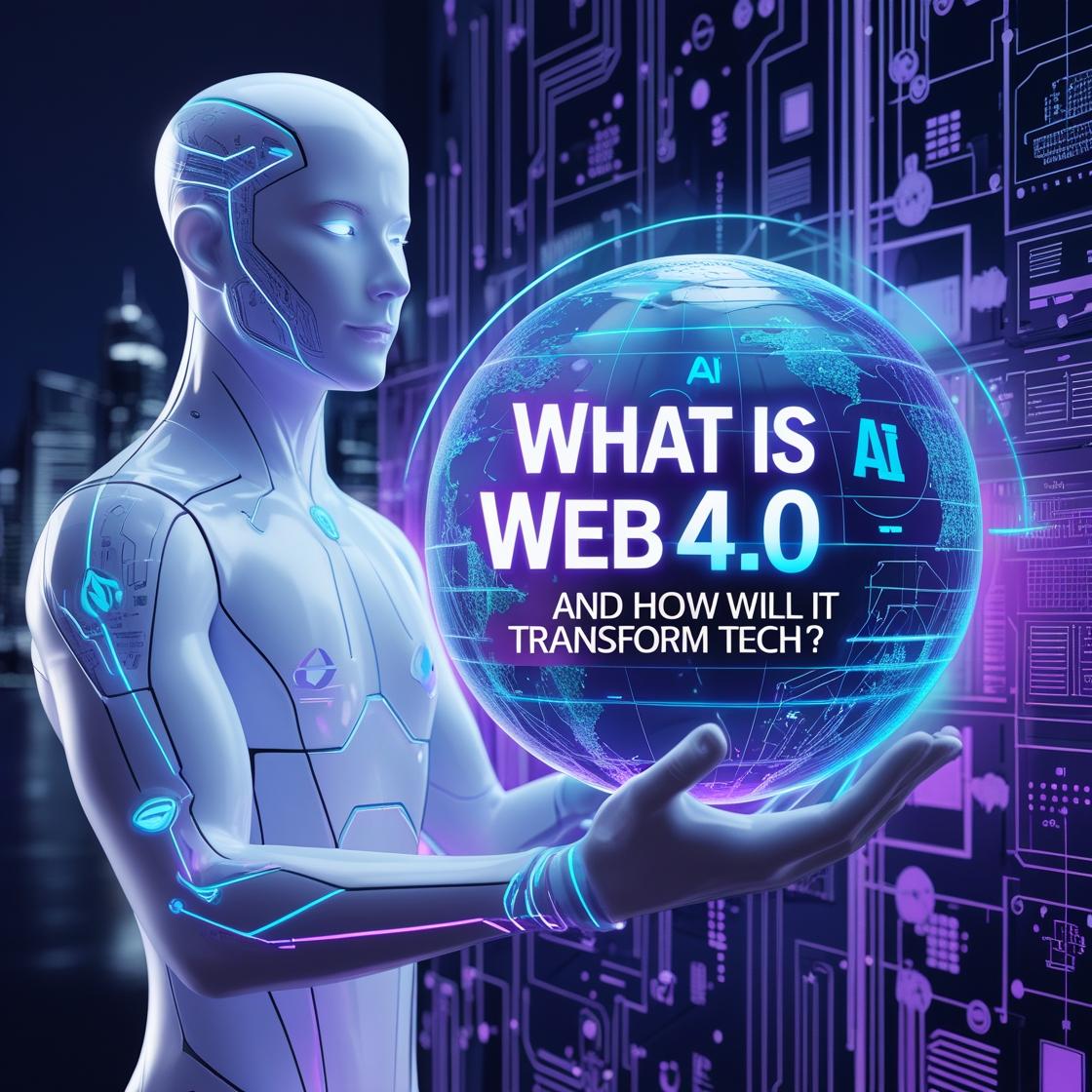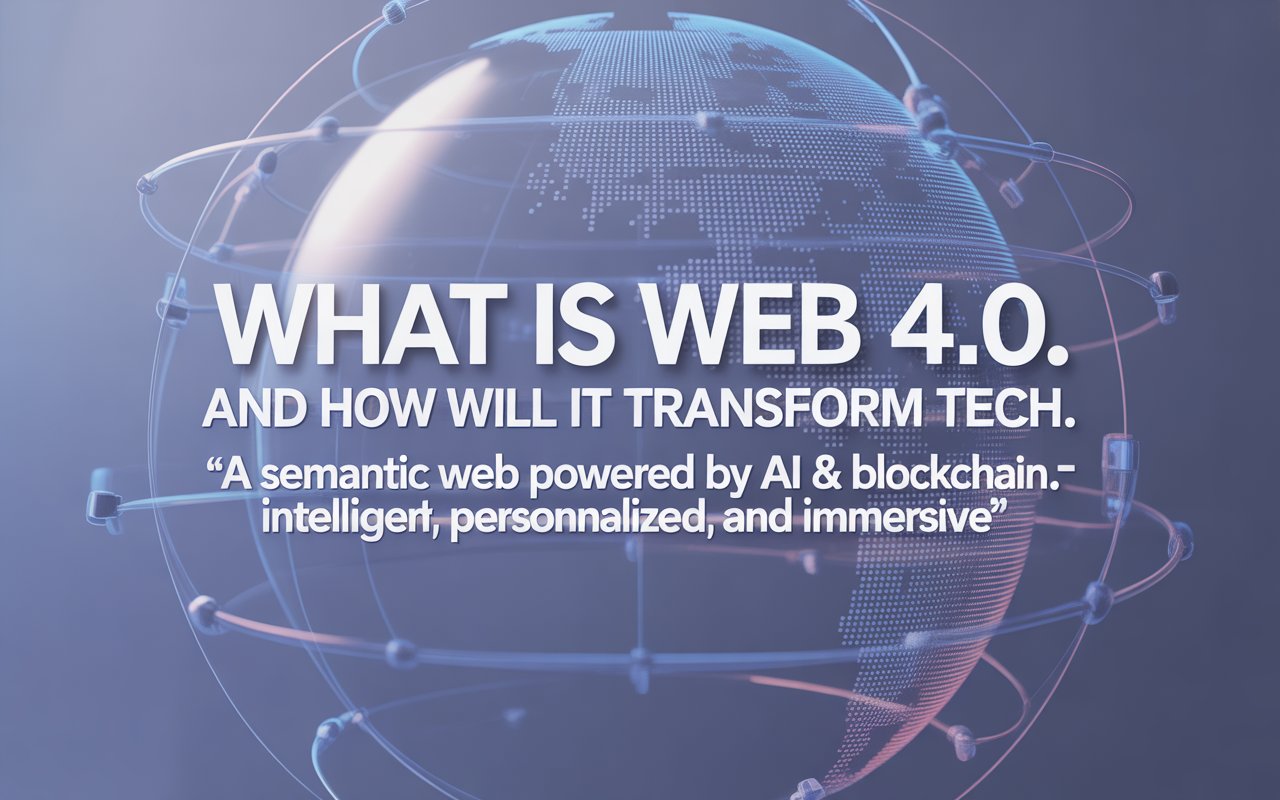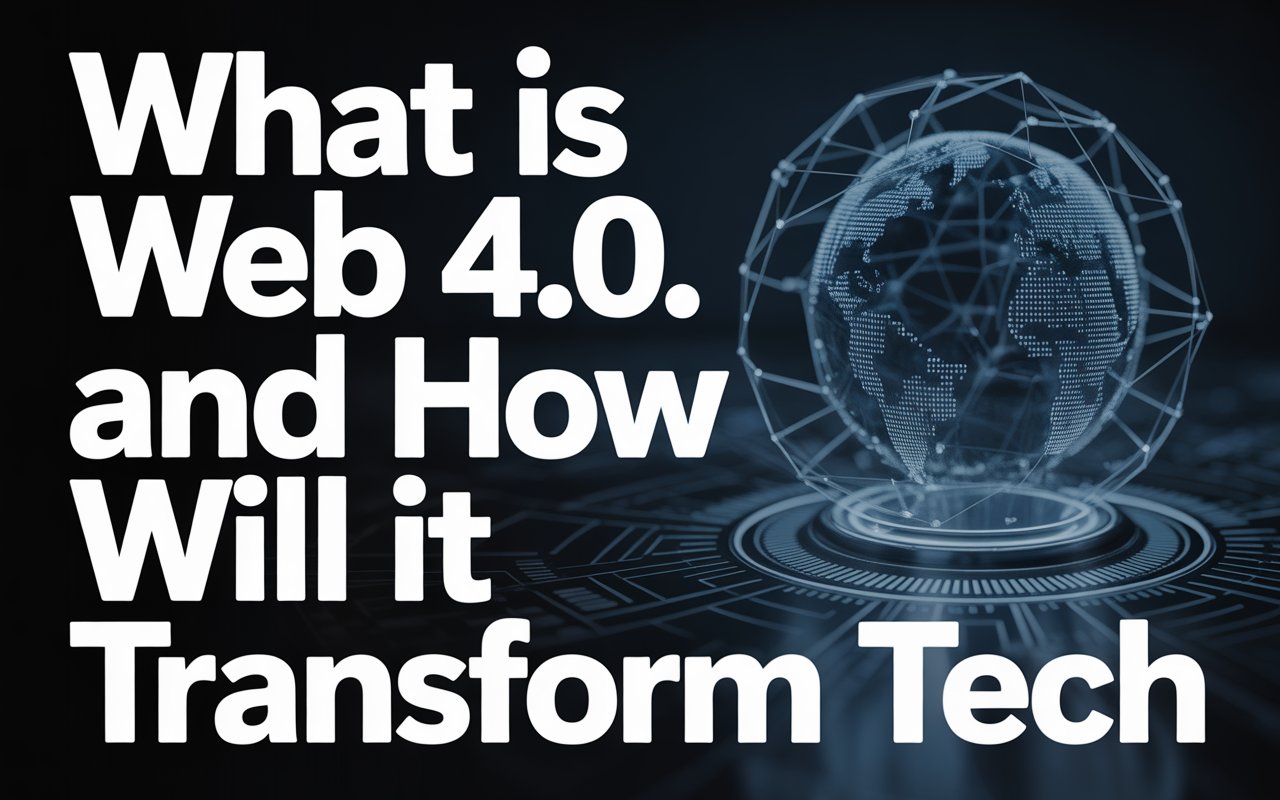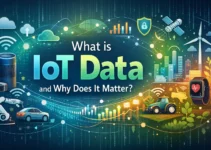Introduction
Web 4.0 is the next big leap in the evolution of the internet, promising to merge artificial intelligence, immersive experiences, and hyper-connectivity into a seamless digital ecosystem. Unlike previous versions of the web, Web 4.0 aims to create an intelligent, context-aware environment where humans and machines interact in real time.
If you’ve ever wondered about Web 4.0, the answer lies in its ability to blend virtual and physical realities, personalize every online interaction, and enable autonomous systems to anticipate user needs. This guide will explore Web 4.0, its core features, and the groundbreaking changes it’s set to bring to industries and everyday life.
What Is Web 4.0?
Web 4.0 is often described as the “symbiotic web” or the next generation of the internet that builds upon Web 3.0 (the semantic and decentralized web). While Web 3.0 focuses on decentralization, blockchain, and intelligent data, Web 4.0 is envisioned as a fully intelligent, integrated, and predictive web that connects humans and machines seamlessly.
How Web 4.0 Differs from Previous Iterations
• Web 1.0: Static content with minimal interaction.
• Web 2.0: Social media and user-generated content.
• Web 3.0: Blockchain, decentralization, and semantic web.
• Web 4.0: Fully integrated AI, autonomous systems, and immersive interfaces.
Key Technological Foundations
Web 4.0 builds on artificial intelligence, quantum computing, advanced neural networks, immersive technologies (AR/VR/MR), and next-gen connectivity like 6G.
Timeline of Web Evolution
• 1990s: Web 1.0 – Read-only internet.
• 2000s: Web 2.0—Interactive, social, and mobile.
• 2020s: Web 3.0—Decentralized and intelligent.
• 2030s (expected): Web 4.0—AI-powered, immersive, and autonomous.
Early Examples of Web 4.0 in Action
Prototype AI-driven digital assistants, immersive metaverse platforms, and decentralized autonomous organizations (DAOs) hint at the Web 4.0 future.
Core Features of the Web 4.0 Ecosystem
1. Symbiotic AI and Human Collaboration—AI systems that learn from and work alongside humans in real time.
2. Immersive Mixed Reality—Fully integrated AR/VR experiences for work, learning, and entertainment.
3. Ubiquitous Connectivity—Constant, high-speed access through 6G and ambient computing.
4. Decentralized Web Architecture—Eliminating single points of control.
5. Autonomous Agents—Self-operating systems that make decisions and execute tasks without human input.
How Web 4.0 Will Transform Business and Commerce
• AI-Driven Predictive Models—Businesses can forecast demand and trends with unmatched accuracy.
• New Monetization Models—Beyond ads, Web 4.0 may use tokenized assets, microtransactions, and personalized services.
• Hyper-Personalized Customer Experience—Products and services tailored in real time to individual preferences.
The Social Impact of Web 4.0
• Human-Computer Interaction Redefined – Interfaces become voice-, gesture-, and thought-controlled.
• Privacy and Digital Identity—New challenges as personal data becomes more intertwined with AI systems.
• Employment Shifts—Demand for AI, quantum computing, and XR skills will surge.
• Accessibility Concerns – Bridging the digital divide becomes more critical.
Technical Infrastructure Powering Web 4.0
• Quantum Computing—Enables processing speeds far beyond current capabilities.
• Advanced Neural Networks—Deep learning models that evolve autonomously.
• Edge Computing—Lowers delay by handling data nearer to where it originates.
• Next-Gen Networking—6G and satellite internet for global ultra-fast connectivity.
Preparing for the Web 4.0 Future
• Skills for the Web 4.0 Era—AI programming, XR design, blockchain development, and quantum computing.
• Business Adaptation – Companies should invest in AI integration, immersive customer experiences, and decentralized systems.
• Ethics and Governance—Clear regulations on AI autonomy, privacy, and digital rights.
• Investment Opportunities—AR/VR platforms, AI-driven tools, quantum hardware, and blockchain ecosystems.
Conclusion
Web 4.0 marks a major leap in internet evolution, blending AI, immersive technology, and decentralization to deliver smarter, personalized, and autonomous digital experiences. Those who prepare early will benefit most as this new era transforms how we live, work, and connect.
Frequently Asked Questions
What Is Web 4.0, and How Will It Transform Tech in Simple Terms?
Web 4.0 is the next evolution of the internet, merging AI, immersive environments, and intelligent automation to create smarter, more personalized online experiences.
How is Web 4.0 different from Web 3.0?
Web 3.0 is all about decentralization and semantic data, but Web 4.0 takes it a step further by introducing real-time AI collaboration, immersive mixed reality, and autonomous digital agents.
When will Web 4.0 become mainstream?
Experts predict that early Web 4.0 technologies will gain wider adoption between 2028 and 2035 as AI, quantum computing, and immersive platforms mature.





